- Share repurchases might be on increase as firms pivot from a new tax in 2023
- Management teams appear to be accelerating stock buybacks
- PKW ETF offers exposure to value and cyclical stocks while playing evolving theme
There's growing evidence that firms might indeed be pulling forward share repurchases into 2022 to take advantage of not having to pay a 1% tax on buyback amounts that would take effect in January. While earlier data suggested that buybacks were tracking about in line or even less than was seen a year earlier, there has been a recent uptick. According to Bank of America Global Research, the most recent week featured a jump in this type of corporate use of cash.
Buybacks Ticking Up
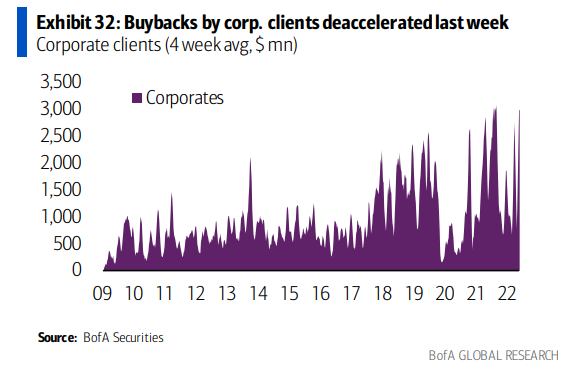
Source: Bank of America Global Research
Is it the new 1% excise tax as part of the 2022 Inflation Reduction Act? Or is it simply companies taking advantage of lower valuations today? Consider that the average P/E ratio among all S&P 500 stocks is now 16.4—and that’s following the sharp October rally. Still, it is hard to say the broad market is cheap at those levels considering the 25-year average earnings multiple is 16.0, according to J.P. Morgan Asset Management.
The 'Average Stock's' P/E Has Retreated
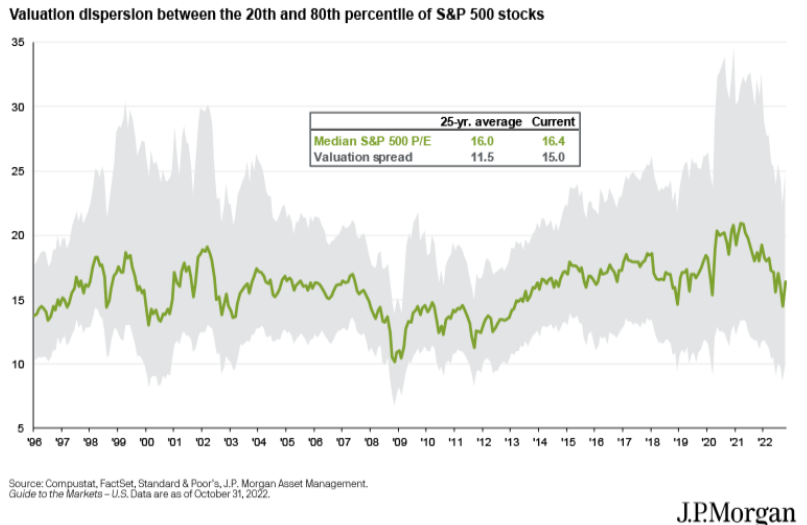
Source: J.P. Morgan Asset Management
Firms might want to be prudent with their use of cash, however. Following years of being able to issue debt at historically low interest rates, then repurchase relatively expensive shares in order to lower a company’s weighted average cost of capital, recent figures show cash levels among investment-grade issuers have fallen back to near pre-COVID levels. During this uncertain time in global markets, the wise move might be to hold off on buybacks to ensure balance sheets are in solid shape.
Firms' Excess Cash is Dwindling
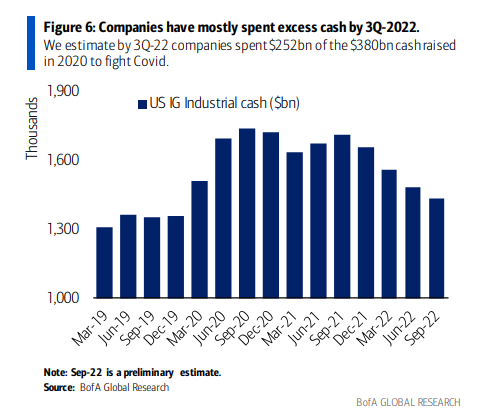
Source: Bank of America Global Research
Portfolio managers feel the same way. The October BofA Global Fund Manager Survey revealed a sharp increase in the number of money managers who prefer companies improve balance sheets rather than increase capital spending or even return cash to shareholders. This is the constant battle that goes on in C-Suites around the world—right when valuations turn favorable, stakeholders demand that companies pull the reins on share purchase programs. It is a constant rising and falling of the tide on Wall Street.
Portfolio Managers Prefer Shoring Up Balance Sheets
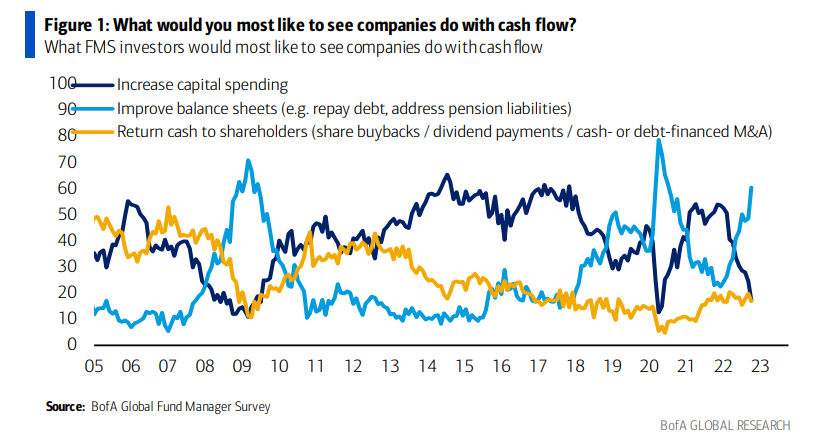
Source: Bank of America Global Research
Right now, though, we have a bifurcated market evolving. Old economy companies appear decently positioned in terms of both their balance sheets and their operations to weather an economic storm. High-growth firms reliant on debt financing and innovation could be in a tight spot. The good news for investors is that you can play a trend in higher buybacks amid macro volatility and uncertainty through one interesting ETF.
The Invesco BuyBack Achievers ETF (NASDAQ:PKW) offers exposure to the Nasdaq US BuyBack Achievers Index. Don't let the name fool you—this "Nasdaq" fund does not hold many high-tech growth shares. Instead, you will own stakes in value-oriented and cyclical sectors.
Financials make up 29% of PKW, though Consumer Discretionary does account for 24% of the ETF. Information Technology and Communications Services together are just 18%, a big underweight to the S&P 500's weight in those two growth-heavy areas. Just 2.8% of the fund is allocated to large-cap growth, according to Invesco. Finally, PKW's P/E ratio of just 9.3 is well below that of the S&P 500.
PKW: A Value-Oriented ETF
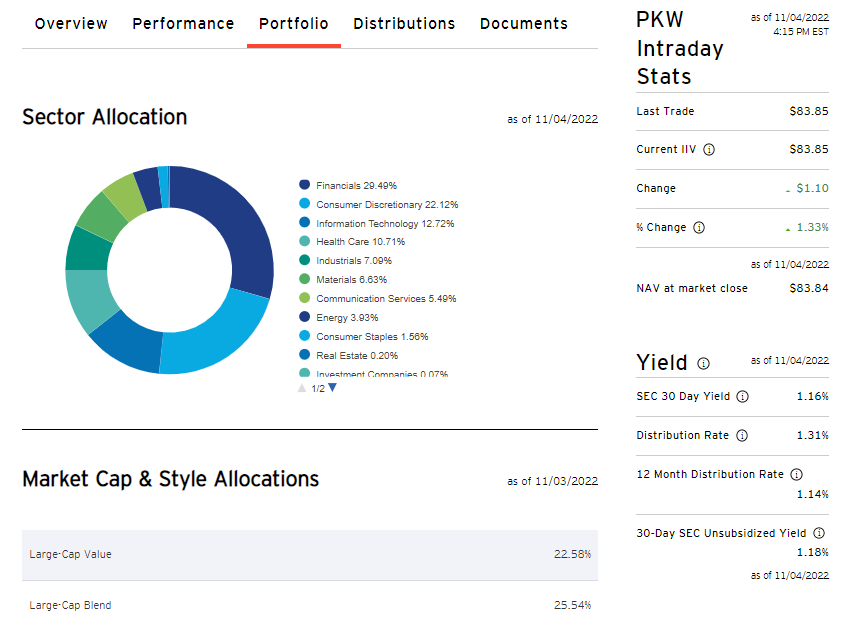
Source: Invesco
The Bottom Line
I’m noticing an uptick in stock buybacks ahead of year-end. Investors can play the trend and get exposure to an inexpensive niche of the market through the PKW ETF. It's a way to tilt a portfolio away from large-cap growth in a way you might not have considered.
Disclaimer: Mike Zaccardi does not own any of the securities mentioned in this article.
